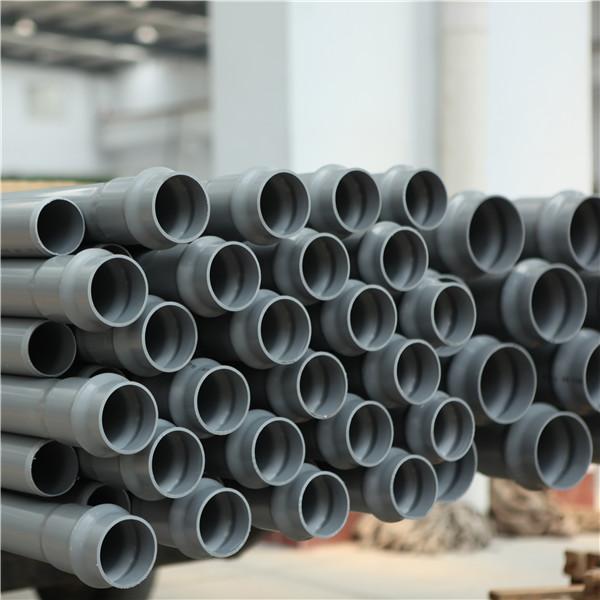Aug . 09, 2024 03:10 Back to list
Understanding the Advantages of HDPE Pipes for Efficient Water Supply and Distribution Systems
High-Density Polyethylene (HDPE) Water Supply Pipes An Overview
High-Density Polyethylene (HDPE) pipes have gained considerable popularity in the field of water supply systems due to their exceptional properties and advantages over traditional materials. As the demand for efficient, sustainable, and durable infrastructure grows, HDPE pipes are becoming a go-to choice for municipal water supply networks, agricultural applications, and industrial usage.
Composition and Characteristics
HDPE is a thermoplastic polymer made from petroleum. Its molecular structure gives it remarkable strength, flexibility, and resistance to many chemicals, making it a preferred material for water supply pipes. Unlike conventional materials such as concrete or metal, HDPE pipes are lightweight and easy to handle during installation. They can be produced in a variety of diameters and lengths, which adds to their versatility.
One of the standout features of HDPE pipes is their resistance to corrosion and scaling. Traditional piping materials often suffer from rust or chemical degradation over time, leading to leaks and costly repairs. In contrast, HDPE’s non-corrosive properties ensure a longer service life, reducing the need for frequent replacements and maintenance. Additionally, the smooth inner surface of HDPE pipes minimizes friction loss and improves the flow of water, making them more efficient for transportation compared to other materials.
Environmental Benefits
In an era where sustainability is paramount, HDPE pipes offer a compelling advantage. They are made from recyclable materials, and the production process is more energy-efficient than that of traditional piping systems. Since they can last for decades with minimal degradation, the overall environmental impact is reduced. Moreover, HDPE pipes can be installed using trenchless technology, which lessens the disruption to the surrounding environment and conserves existing landscapes.
Applications
hdpe water supply pipe

HDPE pipes are used in various applications, making them highly versatile. In municipal water supply systems, they are often employed for the distribution of potable water, as their non-toxic nature adheres to health regulations. Agricultural irrigation systems utilize HDPE pipes for efficient water management, ensuring that crops receive the necessary hydration without wastage.
In industrial settings, HDPE pipes find use in transporting not just water, but also wastewater and corrosive chemicals. Their ability to withstand high pressures makes them suitable for various industrial processes. Furthermore, the construction industry often uses HDPE for approaches to stormwater management and drainage systems, thanks to their lightweight characteristics.
Challenges and Considerations
Despite their numerous advantages, the use of HDPE pipes is not without challenges. Installation requires specific equipment and skilled labor, which can sometimes lead to increased costs compared to traditional materials. Additionally, in specific conditions, such as extreme temperatures, HDPE pipes can become more susceptible to deformation.
Furthermore, the thermal expansion of HDPE must be taken into account during installation. Proper design and engineering are crucial to ensure that the system operates efficiently over its expected lifespan.
Conclusion
High-Density Polyethylene (HDPE) water supply pipes represent a significant advancement in plumbing and infrastructure technology. Their durability, resistance to corrosion, and cost-effectiveness make them an ideal choice for various applications, from municipal systems to agricultural setups. As societies increasingly acknowledge the importance of sustainable practices, HDPE pipes stand out as a forward-thinking solution that blends functionality with environmental responsibility. With ongoing advancements in materials science, the future of water supply with HDPE pipes looks promising, paving the way for more resilient and efficient water management systems.
In summary, HDPE pipes not only facilitate efficient water supply but also support broader environmental goals, making them a critical component of modern infrastructure development.
-
High-Quality PPR Pipes and Fittings Durable ERA PPR & PVC PPR Solutions
NewsJul.08,2025
-
Black HDPE Cutting Board - Durable, Non-Porous & Food Safe HDPE Plastic Cutting Board
NewsJul.08,2025
-
High-Quality CPVC Panel Durable HDPE & PVC Panels Supplier
NewsJul.08,2025
-
Double PE Welding Rod Supplier - High Strength, Durable & Versatile Welding Solutions
NewsJul.07,2025
-
High-Quality PVC-O Pipe Supplier Durable 75mm PVC Pipe & Connections Leading PVC Pipe Company
NewsJul.07,2025
-
HDPE Drainage Pipe Supplier – Durable & Corrosion-Resistant Solutions
NewsJul.06,2025

